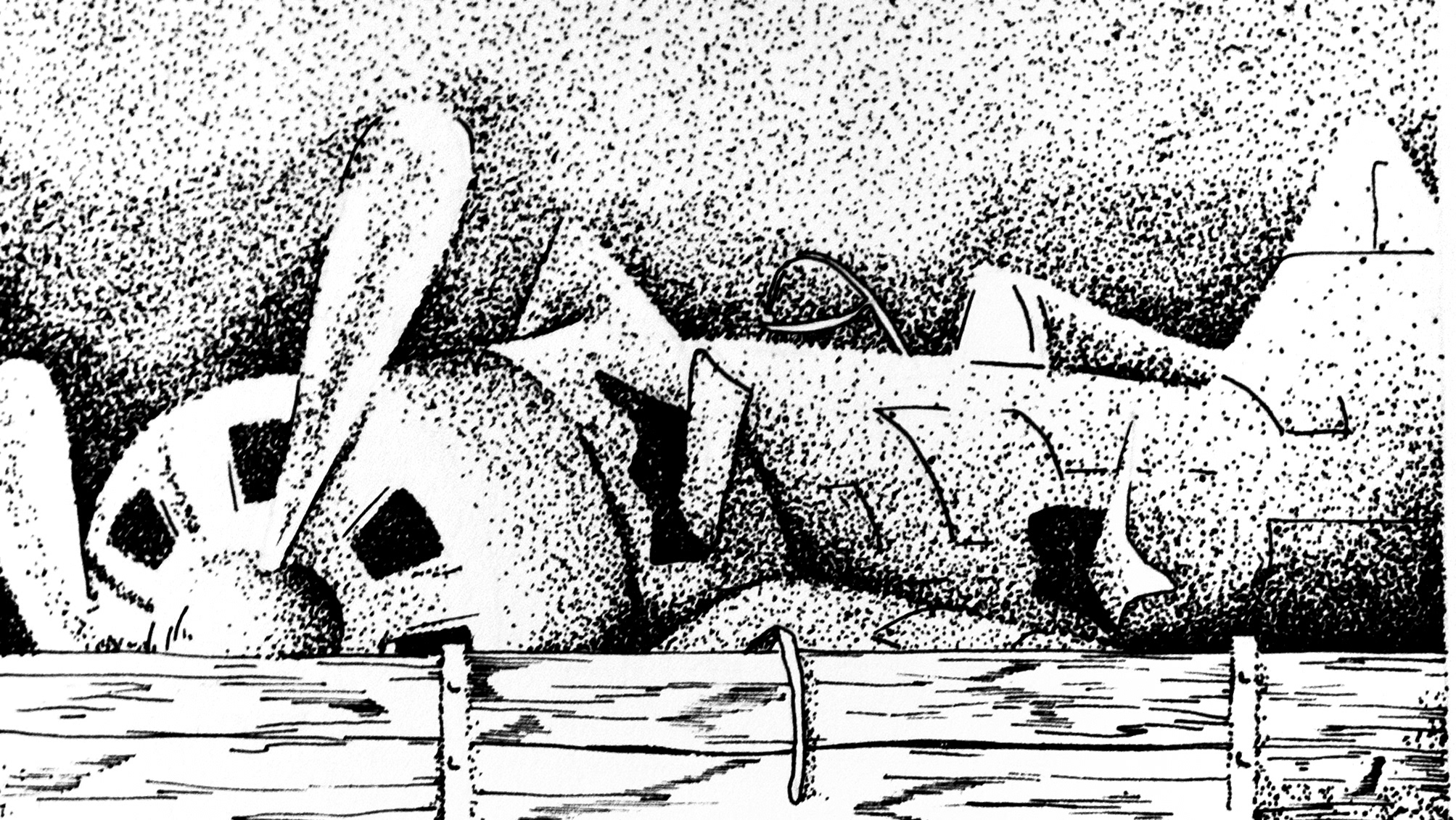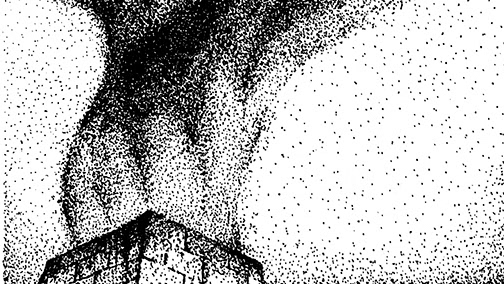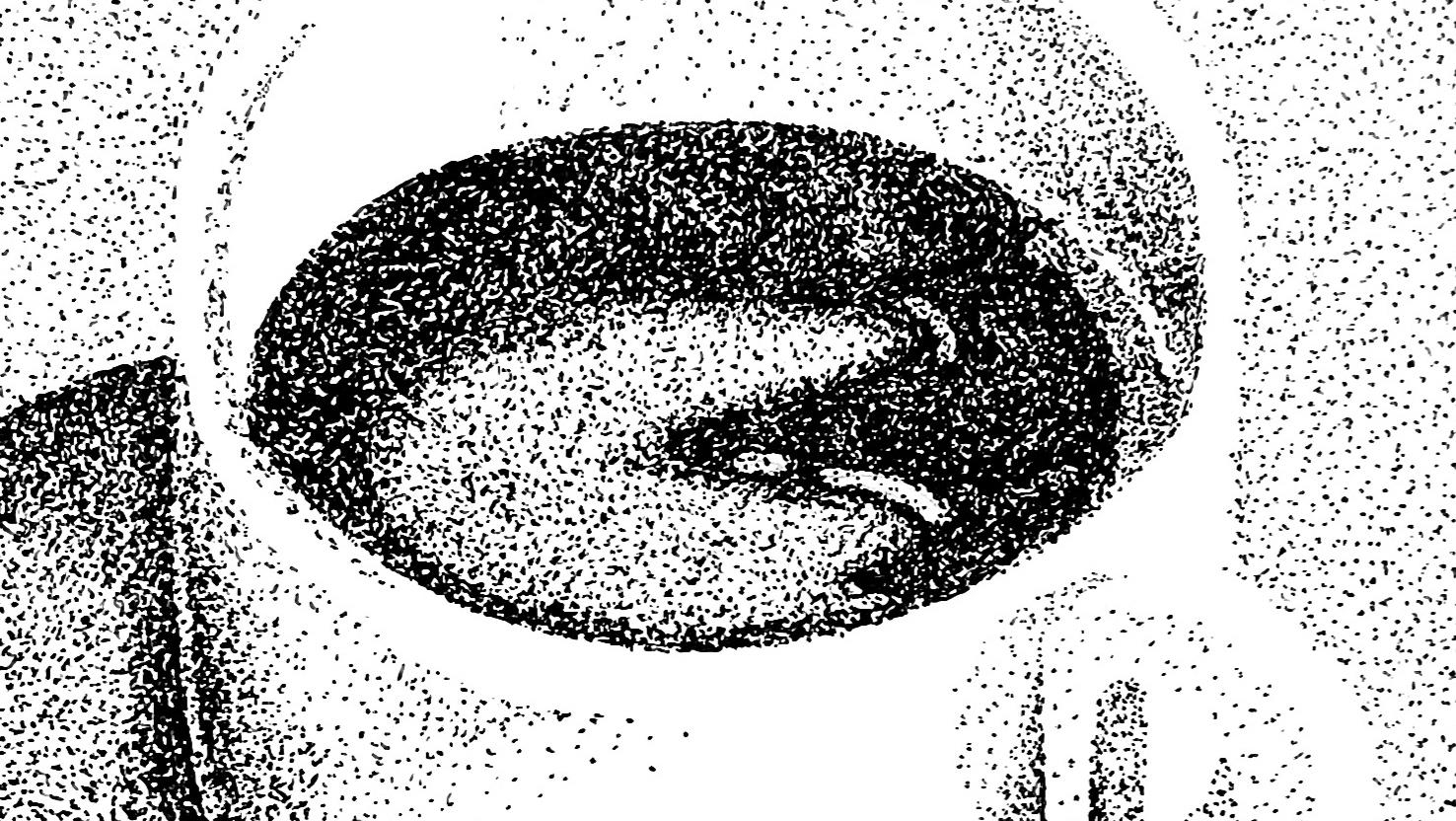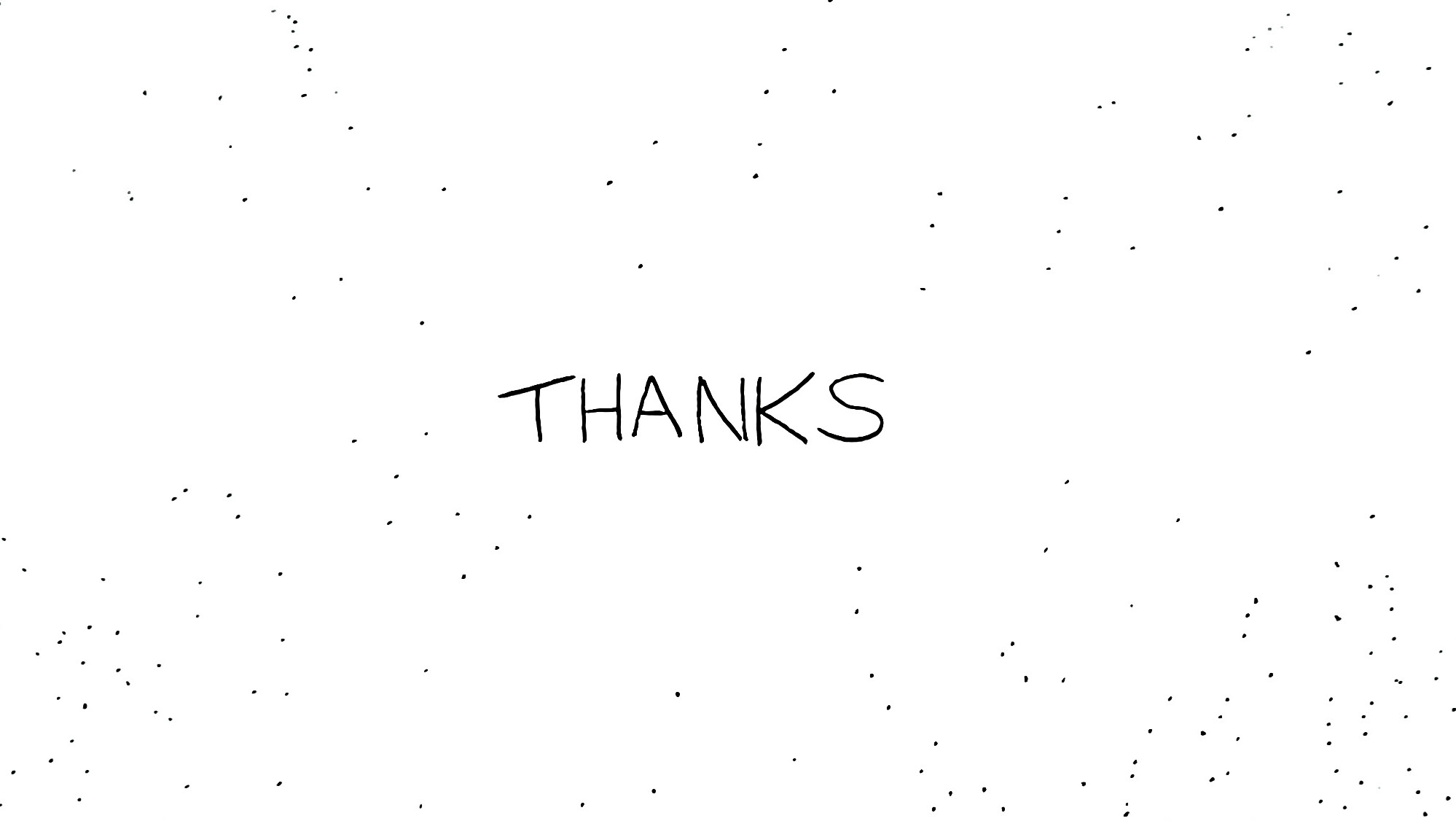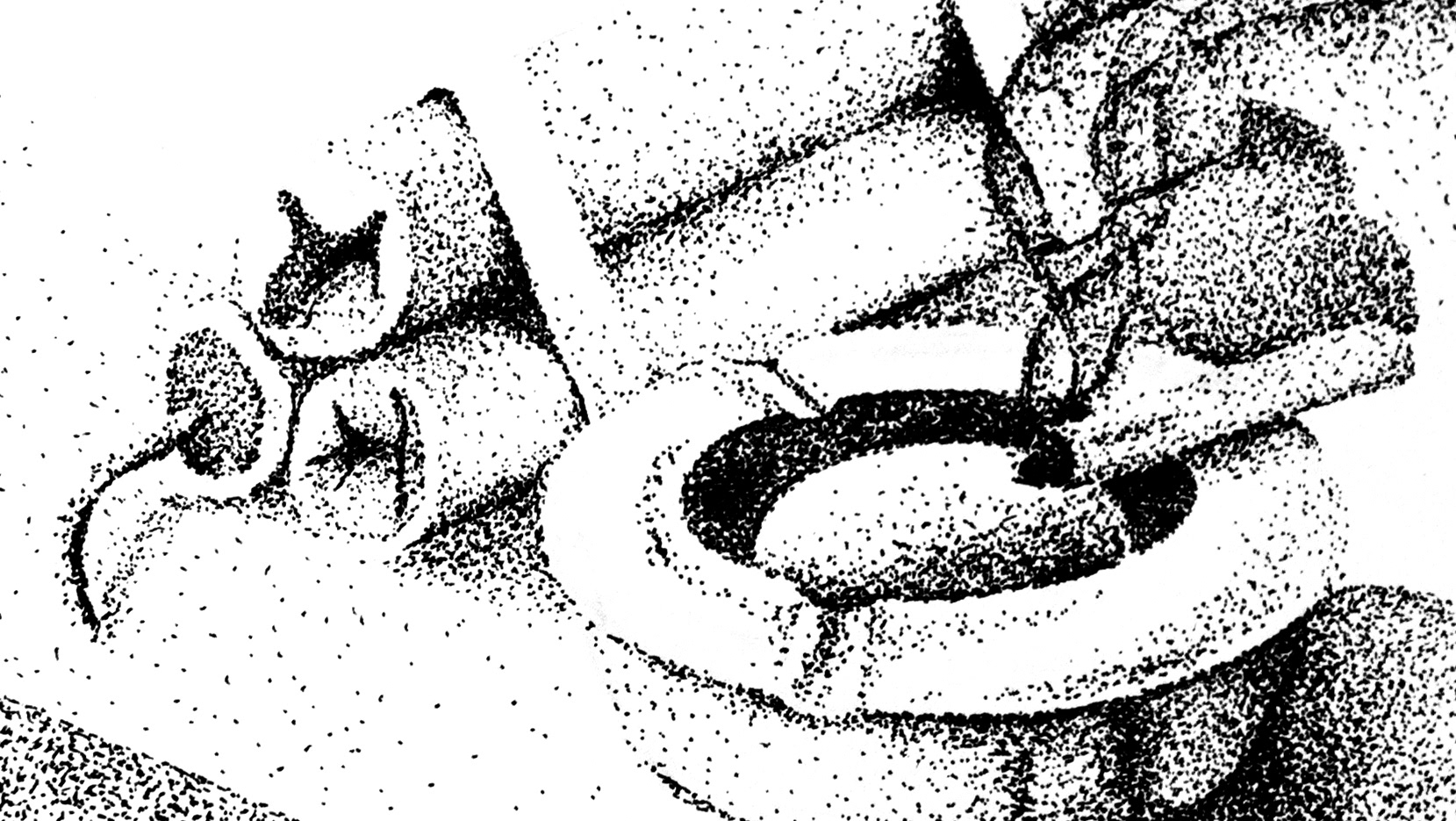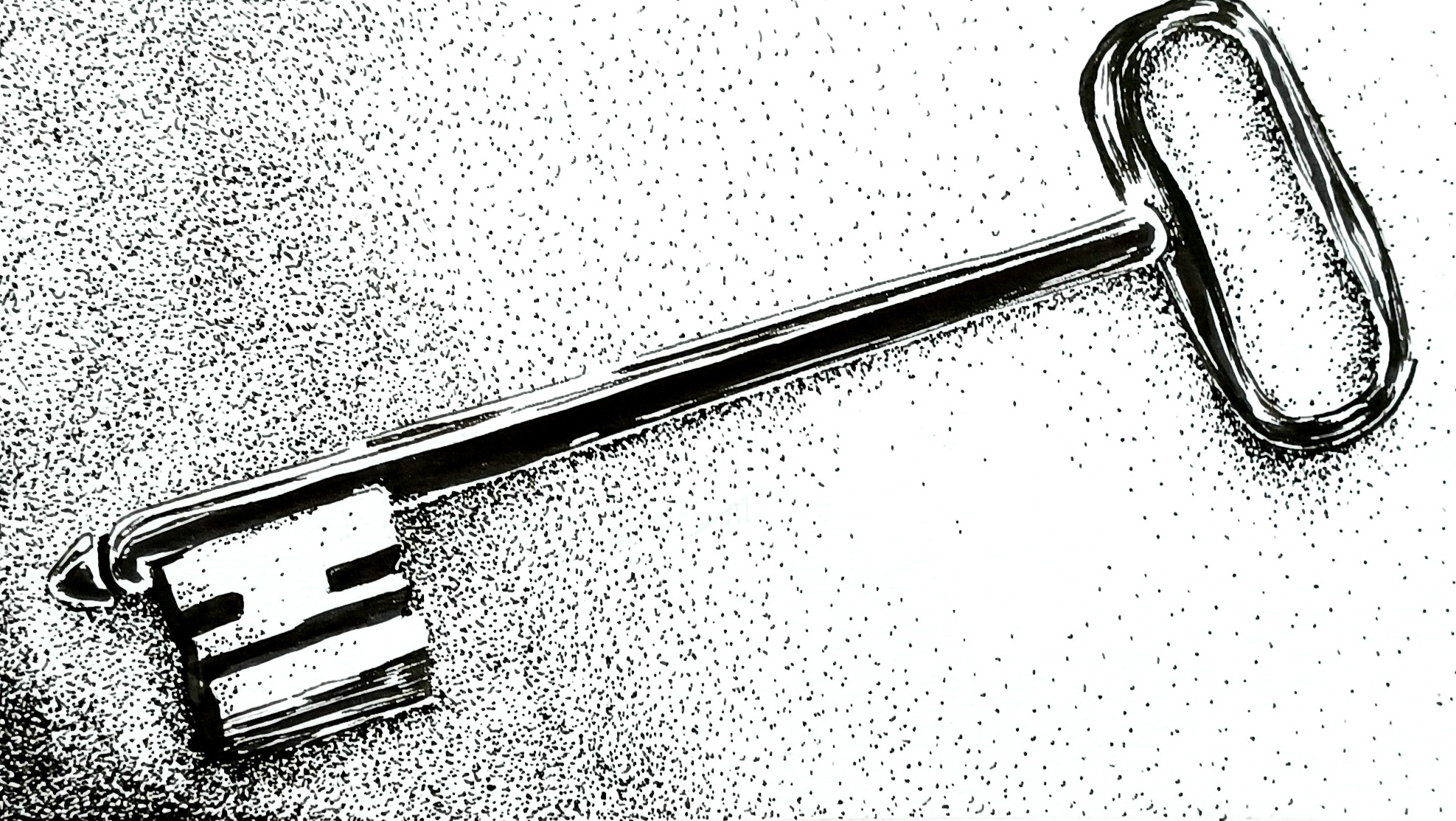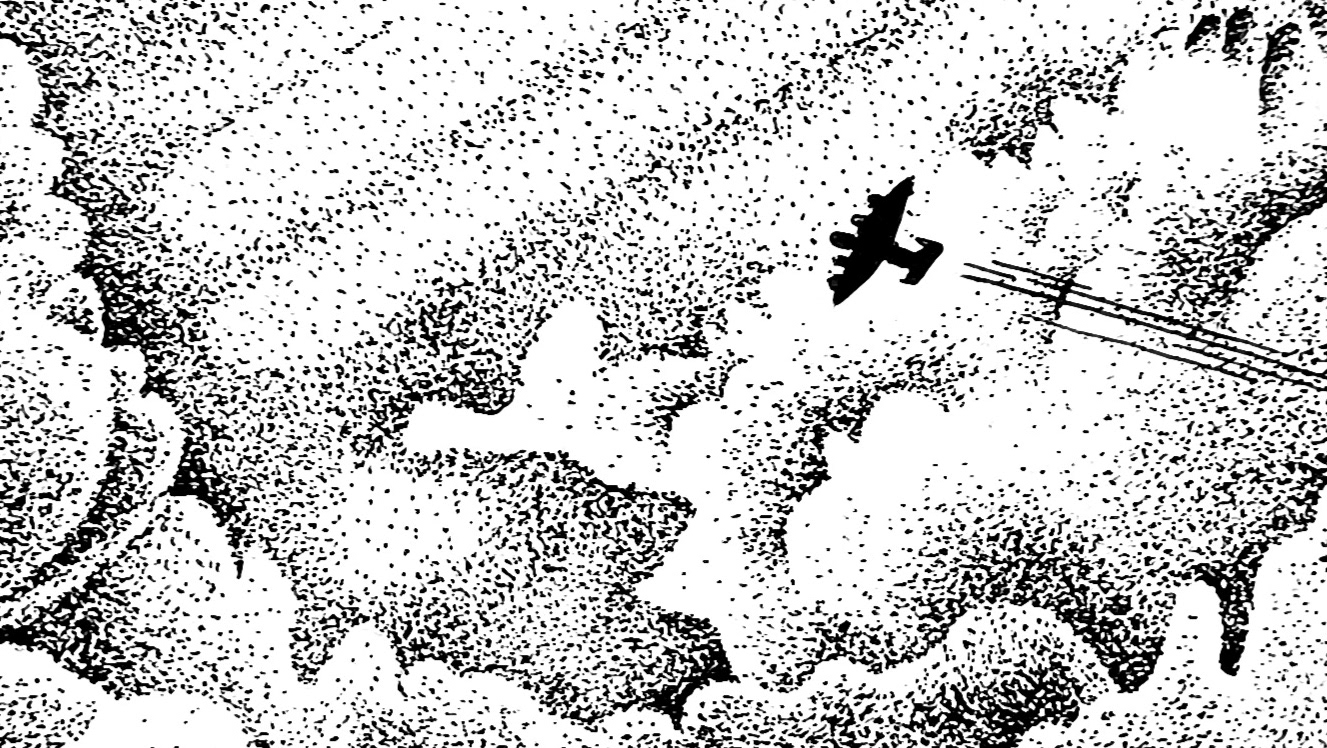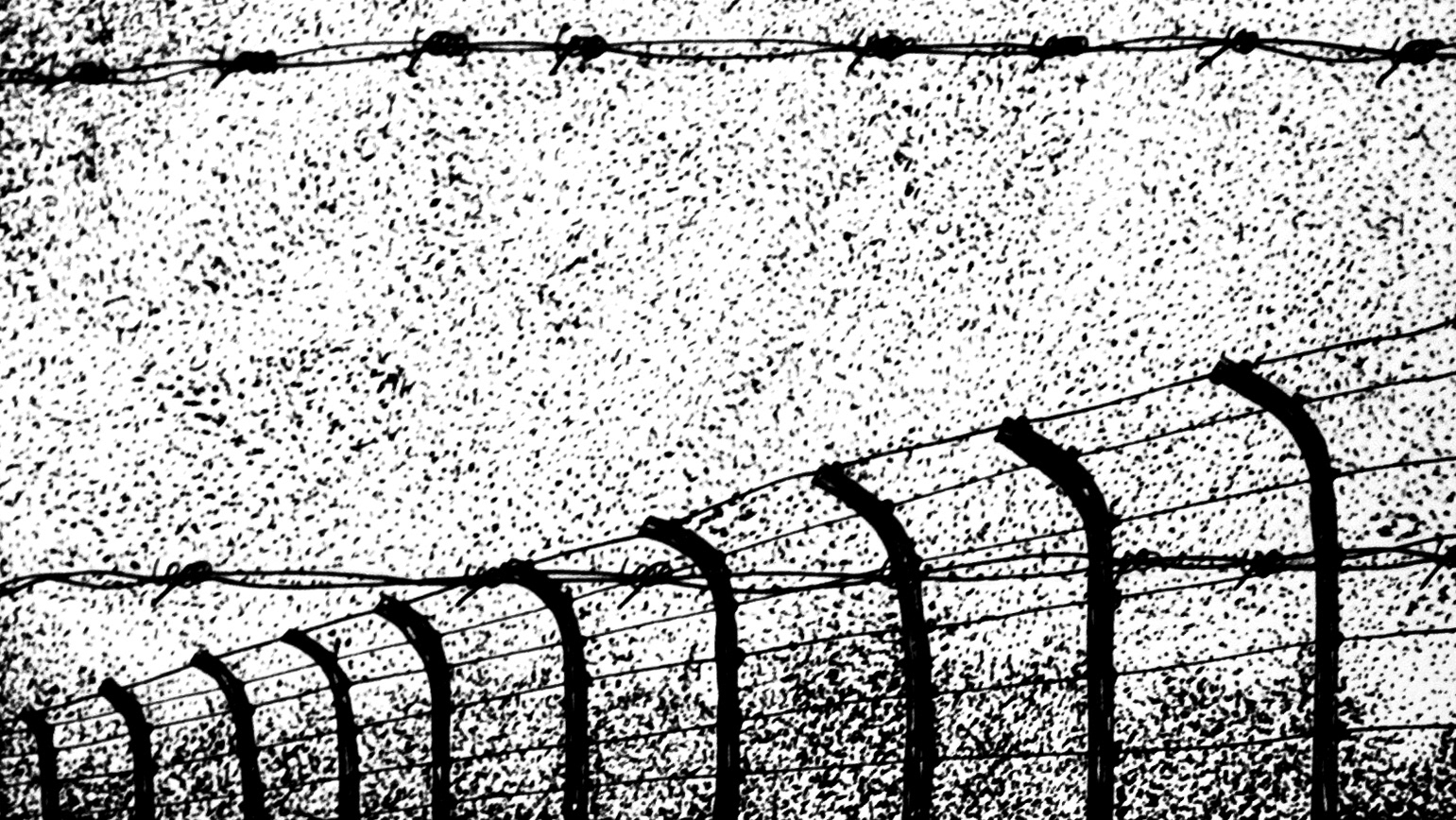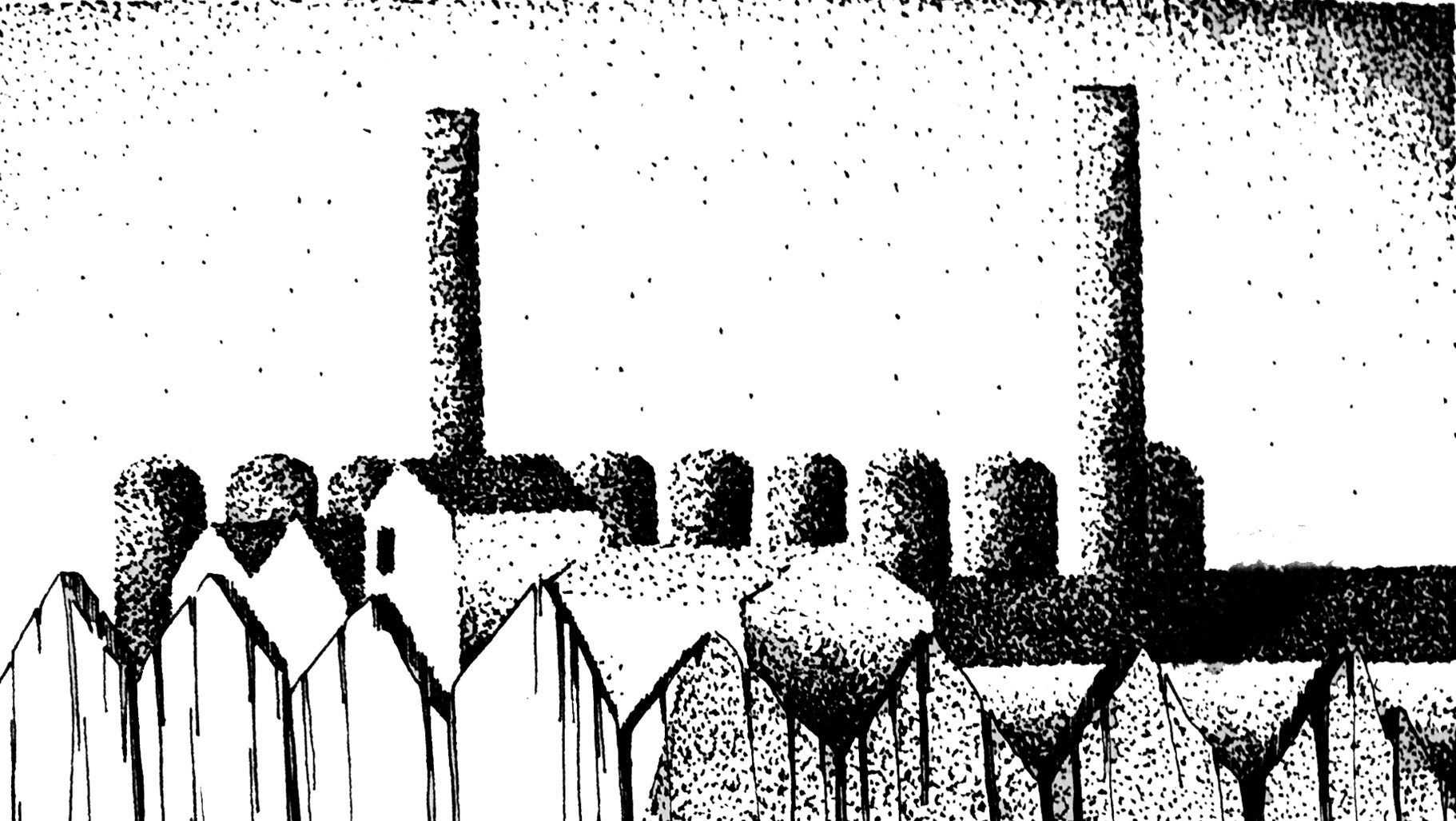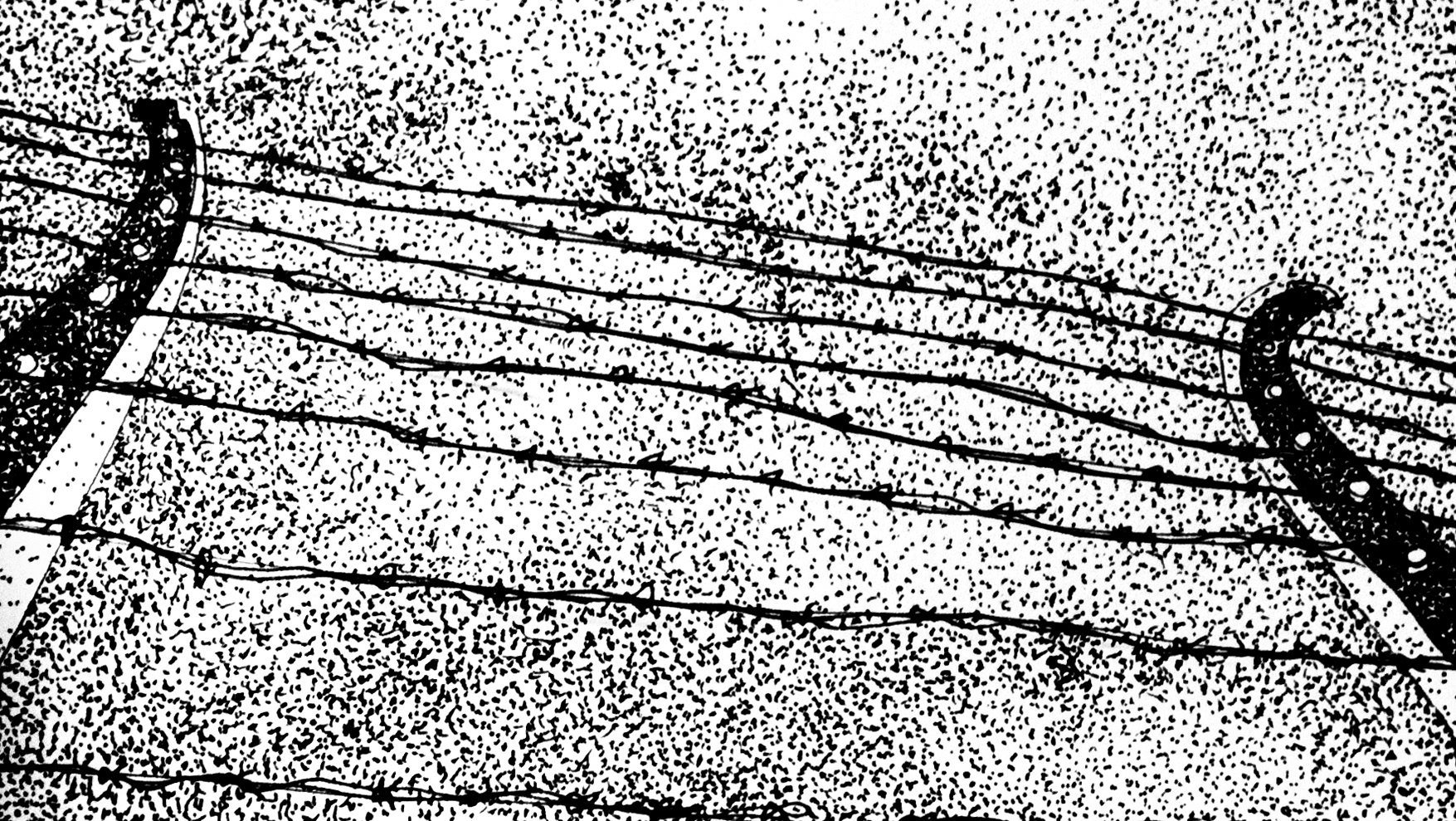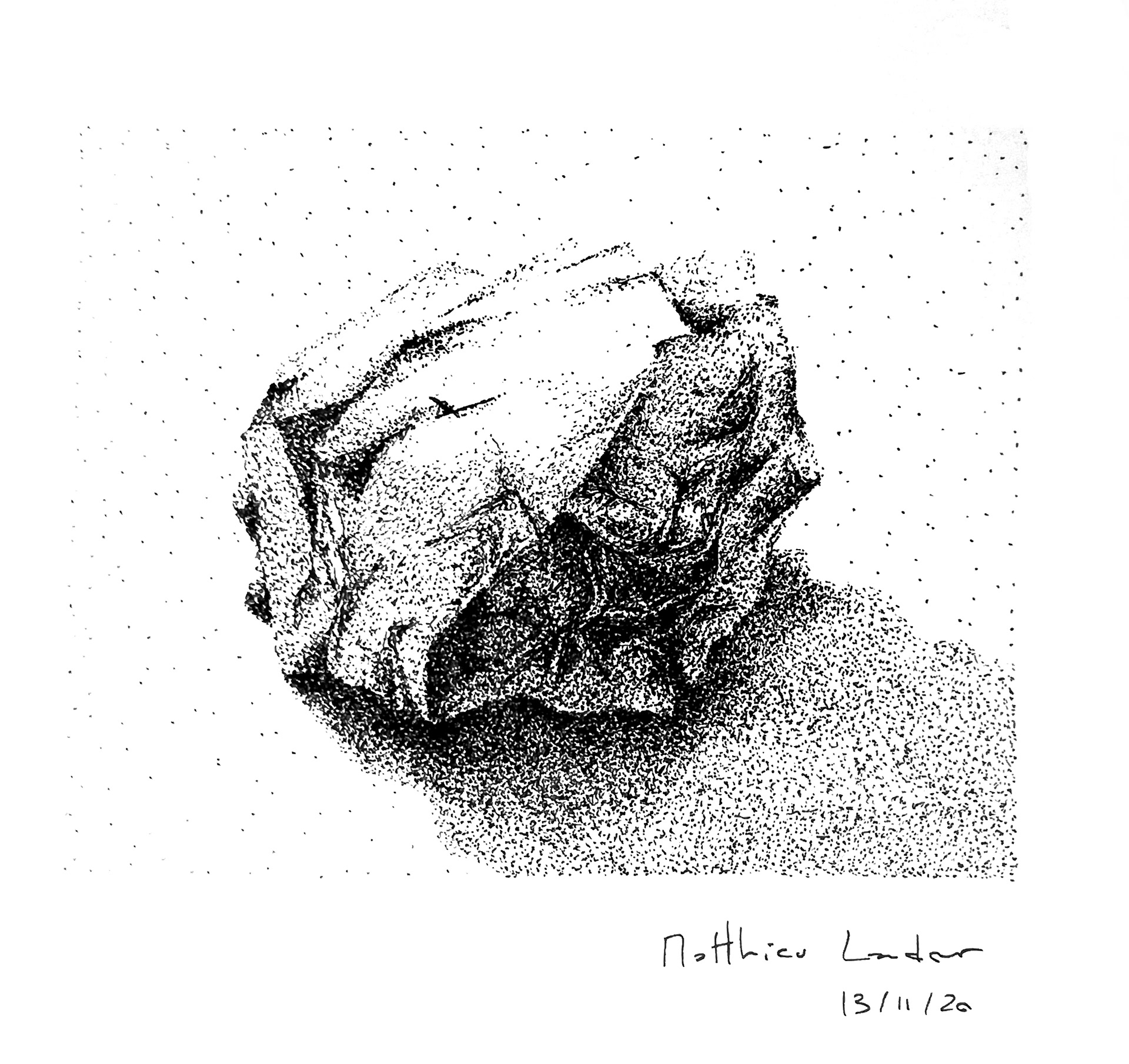
the piece of coal
Today is a day in the seventies, Jean Quadri stands outside his bar, l'aerobar, in Nice, in the south of France.
Jean used to work a lot, his bar was open day and night. He also owns a second restaurant, le Venise, closer to the port. He used to do everything, waiter, cook, accountant. Now he does a little less, he gets to rest a little more.
He doesn't like that, resting. Resting makes him remember, and Jean doesn't want to remember anymore.
Back in 1942, Jean was arrested on the 3rd of January. He had been working with different resistance groups, carrying weapons and helping people cross the border. yet his arrest remained a question mark to the authorities. The german soldiers couldn’t make up their minds about him, whether he was a criminal or a member of the resistance, they weren’t sure.
Jean became an undesirable, like Jean Corticchiatto, Marcel Claus, Jean Pollo. In the train to Auschwitz-Birkenau, Jean and the others didn't hesitate long, escaping was to be attempted. He sew a hole on the wagon with Marcel Claus, only he could escape. He failed, Jean thought he lost him. They met again in Auschwitz, Marcel was heavily beaten, but he was alive.
The undesirables struggled at first to get along with the 45000. They didn't know them, the 45000 knew each other for long, some for years. But the harsh reality of the camp made most of the 45000 realise that unity as a group could help them all survive. Jean got very close to Abel Buisson, they were bricklayers in a kommando in Auschwitz, they survived together.
In january 1945, Jean and a group of 30 were transferred to Mauthausen. They weren't fooled, this was no transfer, it was an evacuation, the sign that the Allies were closing in. The group of 30 was strong, respected, united, with men like Aimee Oboeuf, Jean Cortichiatto, Jules Polosecki, Jean Pollo, Andre Montagne, Georges Guinchan, Andre Rousseau. Communists, french jews, undesirables, all together, they had seen hell, but hell was about to end.
At the very end, working inside a tunnel, Jean Cortichiatto and Jean Pollo were tipped that the SS were about to blow up the tunnel with the prisoners inside. They warned everyone, many lives were saved, those 2 went from undesirable to indispensable.
They survived, Jean and the rest, they met one last time at the Lutetia hotel in Paris. So many 45000 died, they left France 1175, only 119 came back.
Jean Quadri stopped being undesirable, a convict, just like that. He wasn't so surprised, after all, he hadn't been on trial before his deportation. He went back to Nice, opened a bar.
He tried to explain his deportation to his friends, why he came back weighing only 49 kilos. His friends didn't quite understand, some didn't believe him. Even his family didn’t understand, they thought he had died, and now he was back with stories impossible to believe. At one point, Jean decided to stop explaining, to stop talking about it.
Back to the present, Jean tries to find something to do. A 24 hours 7 bar used to do the trick, he always had something to do. Now he has to find something else. He befriends a politician in Nice, he wants to be more involved with his city. He also reads a lot, verifies what he reads, makes notes. He sleeps only a few hours, Jean Quadri survived the camps by working, sleeping for too long was death back there, he carried on with this belief every day of life. There are some habits which won’t leave you, like that little box of coal Jean keeps with him, small bits of coal he eats whenever he feels poorly. Sure there are better medicines out there, but coal saved Jean’s life a few times in the past. He kept in touch with some of the 45000. Jean Antoine Corticchiatto went back to a life of crime, he was shot and died in 1947 in Corsica. Aimee Obeuf finally found Genia, they married and had a child, against all odds. Abel Buisson comes sometimes to see Jean in Nice, Jean comes to see Abel in Paris from time to time too.
Today is a good day though, today a dear friend is coming to see him.
Marcel Claus appears, he came specially in Nice to meet with Jean. They have a lot to talk about, from the hole in the wagon to their unlikely survival. He feels at ease talking with another 45000, they believe each other without a second of doubt. They know what they saw, there is this glimmer in their eyes, as if a bond had been made, all together, an indestructible bond. Jean Quadri’s daughter, Sabrine, is here, Marcel Claus tells her about that time Jean saved his life, carrying him to work and to the blocks, pretending to the kapos and soldiers Marcel could walk when he couldn’t. If Jean hadn’t been there for him, Marcel would have been selected, he wouldn’t be here today. But they mostly talk about that hole they made. They were not scared when they made the hole, they don’t regret trying, they don’t regret failing. In fact, they did escape that day, Marcel is sure of it. A small part of them escaped that day, they wouldn't be here now otherwise. It made everything possible. It made survival possible.
Notes
Thank you for listening to this episode of 31000/45000, the story of 2 trains of french members of the resistance. My name is Matthieu Landour Engel.
This episode was about Jean Quadri and his meeting with Marcel Claus. I invented their conversation, I have no way of proving which conversation they had. Yet I know they met one day, Jean Quadri’s daughter was present, Sabrine Quadri Mounier, and Marcel Claus told her he wouldn’t be here if Jean Quadri hadn’t saved his life. As for the rest, I have no way of knowing.
The undesirables were in an odd situation as they were freed. Freed from the concentration and extermination camps, their sentence, as they were sentenced for various crimes like theft, was cancelled. The undesirables were undesirables no more, yet they were not considered nor would they ever be considered as members of the resistance. So where the 45000 were able to ask to the government for a pension, refered a deported pension, it was much harder for the undesirables to get this pension, due to their previous punishments.
As for Jean Quadri, he got a deported pension in 1966, after it was refused in 1962. Jean Quadri was a brave man, recognised for his resistance acts during the second world war, carrying weapons, helping members of the resistance in hiding, he undeniably reissted against the occupation, as well as he undeniably resisted during his time in Auschwitz, helping his friends when he could, surviving.
I must also point out that Jean Quadri may or may not have been linked to criminal organisations in the south of France in his youth, as he may have been linked to a brothel in Dunkerque, it is difficult to know more about this, it is a part of his life which remains a mystery. Jean Quadri carried on living and died in 1984. Many 45000 mentioned how he behaved with solidarity and bravery in Auschwitz.
Marcel Claus survived and lived around the area of Nancy, east of France, he died in 1973.
Abel Buisson was originally arrested because he was syndicated and became a hostage after an armed attack on the 28th of April 1942, which he had nothing to do with. He survived, lived in Bagnolet, near Paris and passed away in 1989.
As for the other 45000 if you wish to know more about them, let me know which one, and I will update this episode with more informations.
I had the chance to discuss in length with Sabrine Quadri Mounier, the daughter of Jean Quadri, who accepted to share with me his memory. She also kindly sent me notes he made during his life, as well as administrative documents.
I also had the chance to discuss with Paul Filippi, a documentary director, who made a great piece about the 45000, and several other pieces about the corsican 45000, including Antoine Cortichiatto. He made a lot of researches, he kindly shared those with me, we had a great talk and I can only recommend his pieces, what will remain or ce qu'il en restera in french, and mini documentaries named life lines, or lignes de vie in french.
My sources for this story mostly come from the book Red triangles in Auschwitz, by Claudine Cardon Hamet, the book le syndrome de Vichy by Henry Rousso, le convoi du 24 janvier by Charlotte Delbo, the website deportes-politiques-auschwitz.fr, memoire vive, the foundation for the memory of deportation website , the Maitron website, and the fantastic website auschwitz.org
Thank you very much for your attention, next episode will be about Auguste Monjauvis and the deported resistant card.
